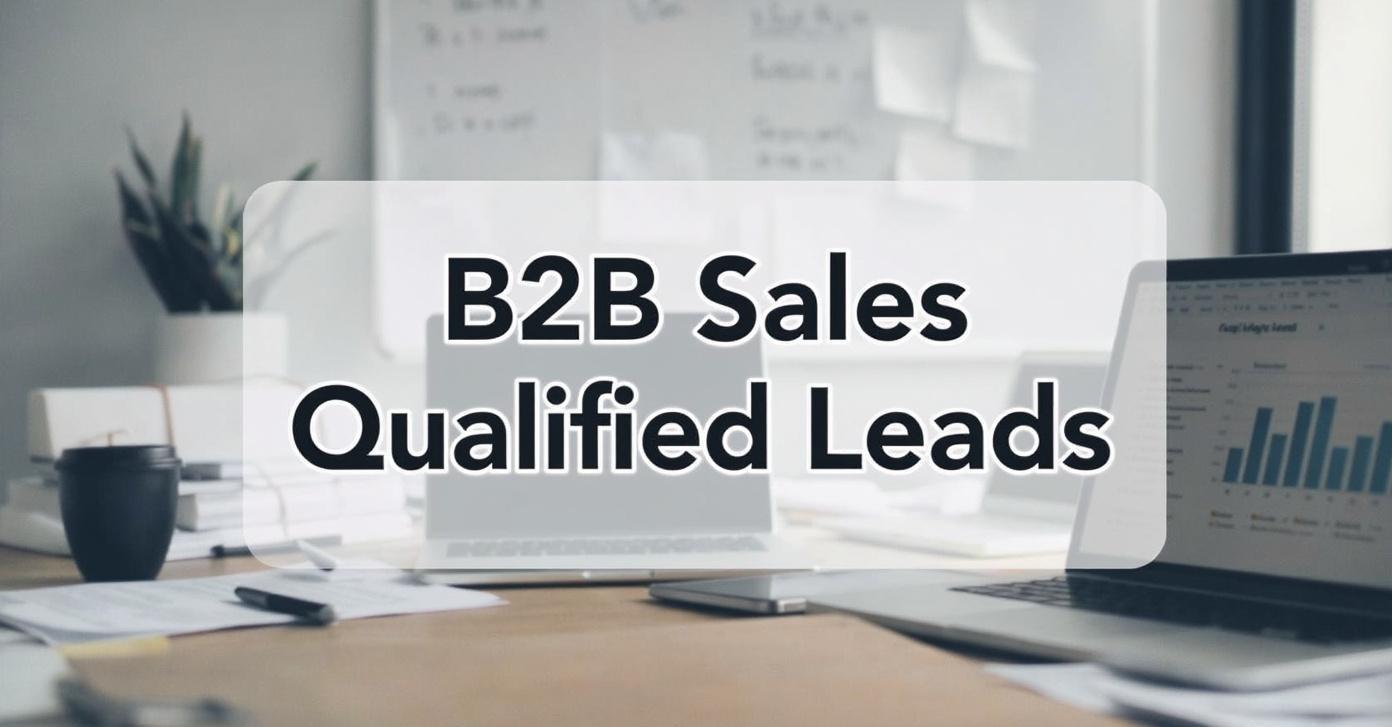Step-by-Step Approach to Leveraging B2B Sales Qualified Leads

Effective sales strategies depend on understanding B2B Sales Qualified Leads. SQLs are prospects who have shown readiness for direct sales engagement and are more likely to convert into paying customers. By prioritizing these leads, businesses can optimize their sales process, improve conversion rates, and achieve sustainable growth.
What Are B2B Sales Qualified Leads?
B2B Sales Qualified Leads (SQLs) are prospects that meet predefined criteria indicating they are ready to engage with sales. Unlike Marketing Qualified Leads, which show general interest, SQLs demonstrate behaviors and characteristics that signal potential purchase intent. Correctly identifying SQLs ensures that sales teams focus on the most promising prospects, improving efficiency and increasing the likelihood of successful conversions.
Importance of SQLs in Sales Growth
Focusing on B2B Sales Qualified Leads allows businesses to accelerate their sales cycles and improve revenue generation. By targeting SQLs, sales teams spend time on prospects who are ready to make decisions, reducing wasted effort and improving overall efficiency. Aligning marketing and sales teams around SQLs ensures that high-value leads are nurtured effectively and delivered to the right stage of the funnel.
Key Traits of High-Quality SQLs
High-quality B2B Sales Qualified Leads share several common traits:
-
Budget Availability: They have the funds or authorization to make a purchase.
-
Clearly Defined Need: They require a solution your product or service offers.
-
Decision-Making Authority: They are involved in purchasing decisions.
-
Engagement History: They have interacted with your content, requested demos, or attended webinars.
-
Purchase Timeline: They plan to make a purchase within a defined timeframe.
Identifying these traits enables sales teams to focus on leads with the greatest potential for conversion.
Aligning Marketing and Sales Teams
Effective management of SQLs requires collaboration between marketing and sales. Marketing teams generate and nurture leads through campaigns, content, and engagement efforts, while sales evaluates lead readiness for direct engagement. Shared lead scoring criteria, clear metrics, and regular reporting ensure both teams work cohesively to convert SQLs efficiently.
Lead Scoring for SQL Identification
Lead scoring quantifies prospect behavior, demographics, and engagement to identify SQLs. Actions such as downloading content or requesting a demo are assigned points, allowing high-potential leads to be prioritized for sales follow-up. Structured lead scoring improves efficiency and ensures sales teams focus on leads with the highest likelihood of conversion.
Nurturing SQLs for Optimal Results
Once a lead is classified as a B2B Sales Qualified Lead, nurturing is essential. Personalized communication, product demonstrations, and targeted content address specific prospect needs. CRM and marketing automation tools allow tracking of engagement, automated follow-ups, and continuous monitoring. Proper nurturing builds trust and increases the likelihood of converting SQLs into customers.
Challenges in SQL Management
Managing SQLs can present several challenges:
-
Inconsistent qualification criteria leading to misclassification.
-
Inaccurate or incomplete data affecting targeting and follow-up.
-
Poor alignment between marketing and sales causing lost opportunities.
-
Delayed engagement allowing prospects to engage competitors.
Overcoming these challenges requires standardized processes, accurate data, and effective team collaboration.
Leveraging Technology for SQL Management
Technology is crucial for managing B2B Sales Qualified Leads effectively. CRM systems, marketing automation platforms, and predictive analytics tools track lead engagement, score prospects, and provide actionable insights. AI-driven predictive lead scoring identifies high-value prospects based on historical behavior. Using these technologies streamlines lead management and increases conversion rates.
Measuring SQL Success
Monitoring metrics is key to evaluating the effectiveness of SQL strategies. Important KPIs include conversion rates, lead-to-deal ratios, average sales cycle length, and revenue generated from SQLs. Regular analysis allows organizations to refine lead qualification, optimize nurturing strategies, and allocate resources efficiently.
Case Studies: SQL Impact on Business Growth
Organizations implementing SQL-focused strategies report measurable improvements in revenue and efficiency. Technology companies using predictive scoring see shorter sales cycles and higher win rates. B2B service providers integrating CRM and automation tools track engagement across multiple touchpoints, ensuring high-quality leads reach sales teams. These examples demonstrate the benefits of structured SQL management.
Best Practices for SQL Management
To maximize the value of B2B Sales Qualified Leads, companies should:
-
Define clear SQL criteria for consistency.
-
Maintain accurate and complete lead data.
-
Encourage collaboration between marketing and sales.
-
Use automation to streamline tracking, scoring, and follow-ups.
-
Continuously monitor and optimize SQL strategies.
Future Trends in SQL Management
The future of B2B Sales Qualified Leads includes AI-driven insights, predictive analytics, and omnichannel engagement. Companies adopting these technologies can maintain a consistent flow of high-quality leads, shorten sales cycles, and strengthen client relationships. Proactive SQL management remains critical for sustainable growth and competitive advantage.
About Us : Acceligize is a global B2B demand generation and technology marketing company helping brands connect with qualified audiences through data-driven strategies. Founded in 2016, it delivers end-to-end lead generation, content syndication, and account-based marketing solutions powered by technology, creativity, and compliance.
- Art
- Causes
- Crafts
- Dance
- Drinks
- Film
- Fitness
- Food
- Games
- Gardening
- Health
- Home
- Literature
- Music
- Networking
- Other
- Party
- Religion
- Shopping
- Sports
- Theater
- Wellness




